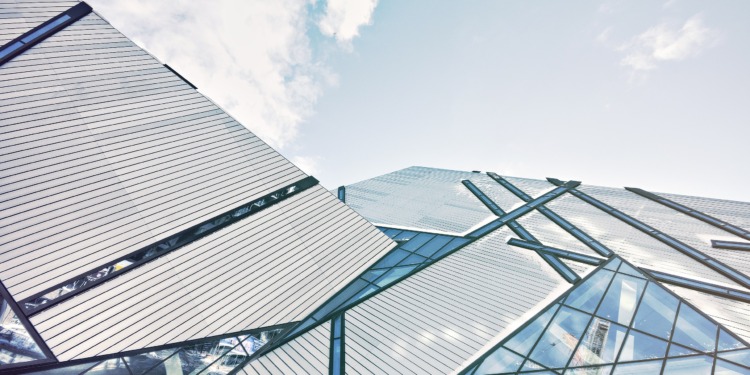How would you feel about moving into a vertical city, where the lives of nine million people are contained in a building spanning over 170km in length, 500 metres in height, and 22 metres in width? These are the dimensions of The Line, and drone footage over north-western Saudi Arabia has shown it’s already in construction.
To some it’s a futuristic utopia, where a five-minute walk can take you to all of your daily needs, leaving plenty of time to enjoy the city’s stadiums, opera houses, and perfectly manicured gardens.
To others however, the strict Sharia laws combined with the high levels of surveillance The Line enables makes the city seem straight out of a sci-fi horror.
What exactly is The Line, where is it, and how will it work?
The Line is part of Neom, a $500bn urban region that also includes Oxagon, a city for tech constructed on the sea, as well as Trojena, a mountain region where the 2029 Asian Winter Games are expected to be held.
Neom’s website describes the vertical city as “a civilizational revolution that puts humans first, providing an unprecedented urban living experience while preserving the surrounding nature.”
No roads or cars will be seen in The Line, and since it will run on 100% renewable energy, the city will have a zero-carbon footprint.
The planners also promise a perfect climate year-round, access to all facilities within just a short walk, and a high-speed rail service to enable rapid transit to the other neighbourhoods known as “modules.”
“95% of land will be preserved for nature [and] people’s health and wellbeing will be prioritized,” making this city the perfect home for “the best and the brightest,” the site exalts.
But how realistic is this project? And what about it is filling so many people with unease?
NEWS 🚨: Saudi Arabia has already begun construction on its 106 mile-long megacity structure, "The Line” pic.twitter.com/8tj3WHXfwZ
— Latest in space (@latestinspace) October 23, 2022
The Linear City Concept
Although Neom’s site claims that a city with The Line’s structure and design “has never been attempted before,” in reality the idea of a linear city is nothing new.
In fact, the origins of this concept are generally credited to Arturo Soria y Mata, a Spanish town planner who articulated the design in the Madrid newspaper “El Progreso” in 1882.
Soria y Mata began to pursue his “Ciudad Lineal,” but the dream was quickly torn out of reach by inflating land prices.
Related Articles: How a New Carbon-Neutral Concrete Could Shrink Construction’s Expanding Footprint | Ecocapsule, a Sustainable Solution for Outdoor Living
A tragic second attempt at a linear city was seen in the US in the early 1900s, as Edward Chambless’ attempted to make “Roadtown” a reality.
Though ardently backed by Thomas Edison and William Boyes, the inventor of the monorail, without any wider support (despite decades of petitioning), Chambless’ abandoned his dream and committed suicide in 1936.
Similar visions have also been pursued by French architect Le Corbusier, Soviet Union town planner Mikhail Okhitovich, and Japanese architect Kenzō Tange.
Will The Line succeed where these previous models have failed, or will Neom’s project join its predecessors on the record of linear metropolises that never materialised?
This is… scary. pic.twitter.com/D5JYTaNpQz
— about:blank (@amalwtf) October 21, 2022
Public Controversy
It seems at present the odds are stacked against Neom and The Line, as news of the construction has sparked social media backlash.
“This feels like the video you see in the first act of a sci-fi movie before everything goes to hell in the second.”
“170kms long. There will be 17 districts. Each year a tribute will be chosen…”
“Have they considered the psychological effects of living, working and playing for years or decades in a contained beehive?”
The above comments were posted in response to The Line’s launch video and were joined with thousands of similarly critical responses.
The top concerns regarded the lack of natural light in the lower levels of the building, the noise and reverberations that the high-speed rail will create, and the estimated 1.8bn tonnes of carbon dioxide required to construct the “zero-carbon footprint” city.
Beyond the worries related to the building itself, many fear the consequences of building such a structure that enables high levels of surveillance and control within a country governed by an “exceptionally murderous and repressive regime.”
In Saudi Arabia, criminal law punishments include execution and torture. These sentences are not limited to internationally recognised crimes and so can also apply to adultery and homosexuality.
Despite The Line’s appearance as the product of a futuristic, vastly developed world, these antiquated laws and horrific punishments create a sharp juxtaposition, distorting the vision of what life would look like for its citizens.
For some, the terrifying reality of this project has already struck.
In a gross contradiction to the promise that The Line is “dedicated to the sanctity of all life on Earth,” three members of the Huwaitat tribe have reportedly been arrested and sentenced to death for protesting the forced eviction of their families to create space for construction.
It therefore seems that, whilst the carefully curated PR portrays a utopic world in which walls drip with greenery and waterfalls cascade just outside your bedroom window, it fails to show consequences that living in this reality could entail.
It is certainly dubious whether The Line will ever be completed. Regardless, the progression of this sci-fi film brought-to-life will maintain the attention of architects and the public alike, as we all await the suspected plot twist when dream becomes nightmare.
Editor’s Note: The opinions expressed here by the authors are their own, not those of Impakter.com — In the Featured Photo: Futuristic facade. Featured Photo Credit: Wikimedia Commons.










